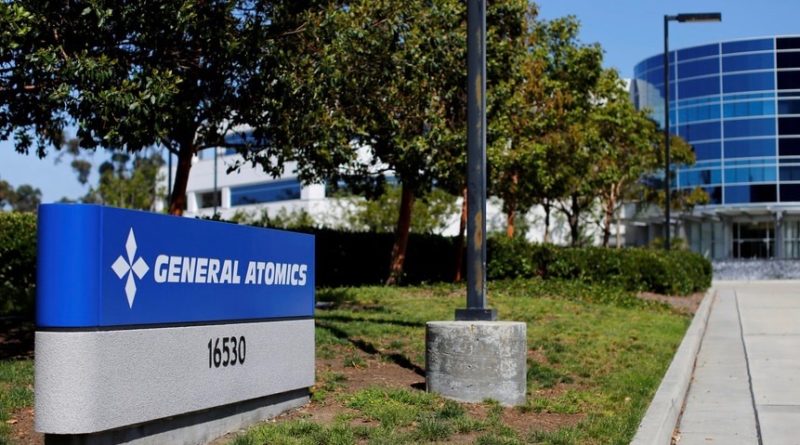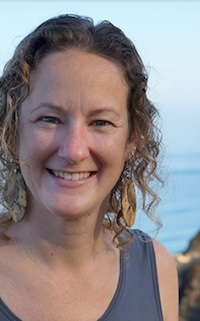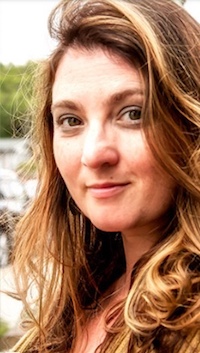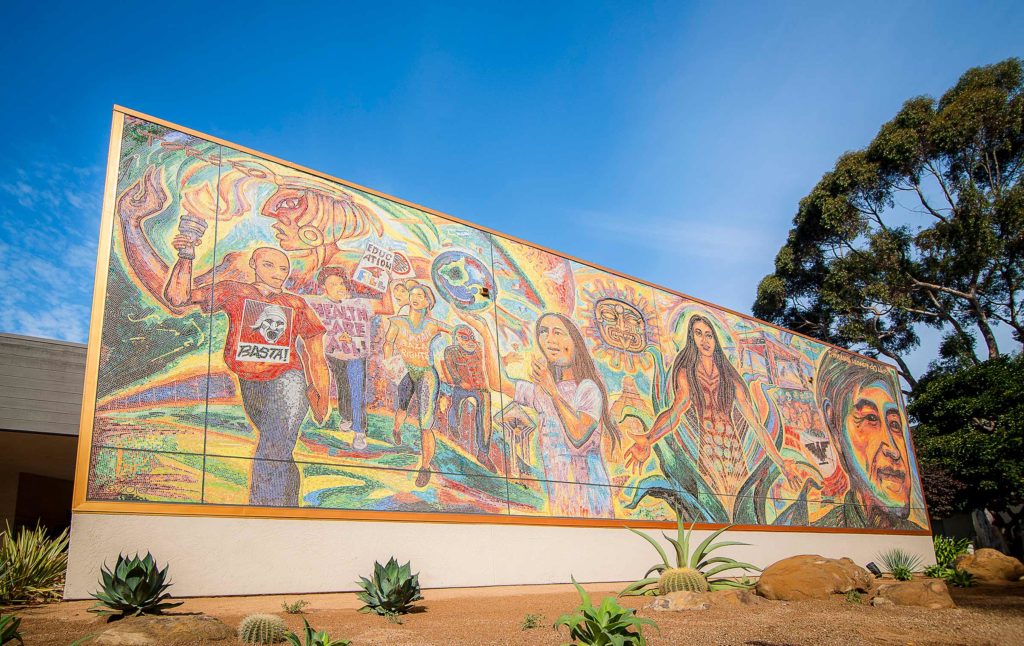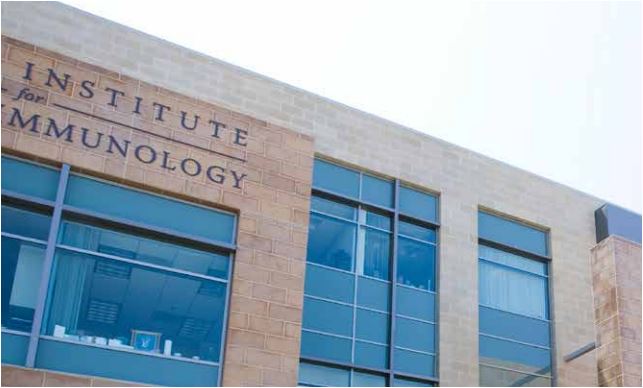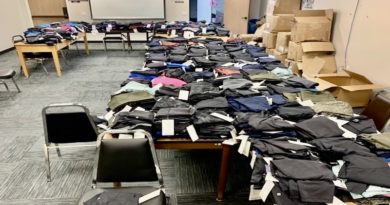Daily Business Report-April 6, 2021
General Atomics acquires Commonwealth Computer Research Inc.
General Atomics has acquired Commonwealth Computer Research inc. (CCRi), a leader in software engineering and data analytics “for delivering real time, global situational awareness to government and commercial customers.” The price was not disclosed.
“The inclusion of CCRi within the GA group will accelerate the delivery of actionable intelligence through the dynamic conversion of data to knowledge,” said Neal Blue, CEO, president and chairman of General Atomics. “CCRi will continue to serve defense and intelligence communities while contributing to GA systems and strategic objectives.”
CCRi is a data analytics and software engineering company, founded in 1989 and located in Charlottesville, Va. It provides custom software development and innovative information engineering solutions to customers in government and private industry. CCRi designs and implements scalable big data solutions to rapidly create activity-based intelligence and information dominance for multi-domain operations. For information on CCRi visit https://ccri.com.
Photo courtesy of General Atomics
Amid California’s unemployment crisis, a tech gold rush
By Ben Christopher | CalMatters
This much is not news: California’s Employment Development Department, the state agency responsible for shelling out unemployment claims to millions of jobless Californians, is still a mess.
But as CalMatters’ Lauren Hepler reports, that year-long mess has been very lucrative for a handful of tech companies and consulting firms.
Since the beginning of the pandemic, the department has spent $236 million on contract workers, software upgrades and other patches to its overburdened and frayed system. With a little digging, Hepler found that nearly half of that — $103.8 million — went to just five vendors, some in the form of no-bid contracts.
The international consulting giant Deloitte has been the biggest beneficiary, taking in at least $69 million.
The contract bonanza is part of a “nationwide unemployment gold rush,” as companies have rushed to the rescue of public agencies unable to meet the unprecedented demand for unemployment assistance — and a surge infraudulent claims.
At last count, 150,658 Californians have spent at least three weeks waiting for their payment. Another 906,744 claims are pending verification.
Cidara Therapeutics announces agreement with Janssen for influenza treatment
Cidara Therapeutics Inc., a biotechnology company developing therapeutics designed to transform the standard of care for patients facing serious fungal or viral infections, has entered into an exclusive worldwide license and collaboration agreement with Janssen Pharmaceuticals Inc. (Janssen), one of the companies of Johnson & Johnson, to develop and commercialize Cidara’s Cloudbreak antiviral conjugates for the prevention and treatment of seasonal and pandemic influenza. This agreement was facilitated by Johnson & Johnson Innovation.
Under the collaboration, Cidara will be responsible for the development and manufacturing of the first influenza AVC, CD388, into the clinic and through Phase 2 clinical development, and Janssen will be responsible for late-stage development, manufacturing, registration and global commercialization. Cidara will receive an upfront payment of $27 million and Janssen will fund all future research, development, manufacturing and commercialization for CD388.
Scripps scientists receive National Science Foundation awards
Two scientists at Scripps Institution of Oceanography — Deirdre Lyons and Sarah Giddings — have been awarded by the National Science Foundation’s (NSF) Faculty Early Career Development Program (CAREER). The prestigious CAREER program recognizes exceptional early-career faculty who have “the potential to serve as academic role models in research and education and to lead advances in the mission of their department or organization.”
Lyons and Sarah Giddings are among the recent NSF award recipients, and both have ambitious projects in the works that will lay the foundation for their careers as teacher-scholars.
Lyons is a cell and molecular biologist who studies evolutionary developmental biology and gene regulation. Her research compares developmental patterns in different animal embryos to understand how diversity arose through evolution.
Giddings’ Her research focuses on coastal areas where freshwater runoff meets the ocean. These areas have immense ecological and economic value, providing homes for many plants and animals and often serving as the centers of coastal communities.
Activist, comedian Cheech Marin to help kick off César E. Chávez Celebration
Widely known as one half of the iconic comedy duo Cheech and Chong, Cheech Marin is lending his talent, knowledge and humor to help kick off the University of California San Diego 2021 César E. Chávez Celebration on April 8. His talk is part of a monthlong series of free virtual events that honor the life and achievements of Mexican American labor leader and civil rights activist César E. Chávez.
April’s lineup of events will center on the theme of “50 Years of Chicano Movement: Honoring the Legacy & Struggle.” Marin—a comedian, activist and actor—will deliver the keynote address as part of the 20th Annual César E. Chávez Celebration Kickoff and Scholarship Awards on Thursday. The keynote will include a discussion of his career in comedy and film, his community activism as well his art collection. A passionate Chicanx art supporter and collector, Marin has developed the finest private collection of Chicanx art in the nation through the Cheech Marin Center for Chicano Art, Culture and Industry.
Jacobs School of Engineering ranks 9th in engineering schools ranking
For the second year in a row, the University of California San Diego Jacobs School of Engineering has ranked #9 in the nation in the influential U.S. News & World Report Rankings of Best Engineering Schools.
This #9 ranking is up from #11 two years ago, #12 three years ago, #13 four years ago, and #17 five years ago.
“Ranking ninth in the nation is a tribute to the hard work, grit and excellence of our students, staff, faculty, industry partners, collaborators and friends,” said Albert P. Pisano, Dean of the UC San Diego Jacobs School of Engineering. “I look at rankings as recognition rather than definition. It’s wonderful to be recognized for some of the ways we are strengthening and growing as a school and as a community.”
How brain cells repair their DNA reveals ‘hot spots’ of aging and disease
Neurons lack the ability to replicate their DNA, so they’re constantly working to repair damage to their genome. Now, a new study by Salk scientists finds that these repairs are not random, but instead focus on protecting certain genetic “hot spots” that appear to play a critical role in neural identity and function.
The findings, published in the April 2, 2021, issue of Science, give novel insights into the genetic structures involved in aging and neurodegeneration, and could point to the development of potential new therapies for diseases such Alzheimer’s, Parkinson’s and other age-related dementia disorders.
Scripps Del Mar Vaccination Super Station to close
The Scripps Del Mar Fairgrounds Vaccination Super Station will be closed later this week on Wednesday, April 7; Friday, April 9; Saturday, April 10; and Sunday, April, 11 due to the low number of COVID-19 vaccine doses that were delivered to Scripps Health last week.
Patients who have appointments scheduled at the super station on those dates should be rescheduled automatically through the MyTurn online appointment system.
Vaccines are available at the super station by appointment only. No walk-ins are permitted.
Uri Manor appointed assistant research professor at The Salk Institute
The Salk Institute has appointed Uri Manor to the position of assistant research professor, a non-tenured faculty position, as part of its ongoing commitment to attract and retain top talent. Manor has been a Salk staff scientist and director of the Waitt Advanced Biophotonics Core Facility since 2016. He will lead an independent research group and continue his work developing cutting-edge imaging techniques to illuminate biologically relevant targets.
Manor’s research focuses on deep learning-based computational approaches to enhance the resolution, sensitivity and speed of next-generation microscopes. He applies these novel methods to probe the inner workings of biological molecules such as those involved in cellular movement, hearing loss and dementia. Just this month, he published a new deep learning tool in Nature Methods that improves the quality of low-resolution microscopy images—an approach that could help democratize high-resolution microscopy and further increase the capabilities of cutting-edge microscopes.
Manor received his Ph.D. in cellular, molecular, developmental biology and biophysics from Johns Hopkins University. He conducted his postdoctoral research at the National Institutes of Health. His scholarship has been recognized by awards such as the NIH Fellows Award for Research Excellence and the Salk Institute Innovation Award. His work is supported by grants from the National Institute on Deafness and Other Communication Disorders (NIDCD), the National Science Foundation, the Chan Zuckerberg Initiative, the Navapan Foundation and the David F. and Margaret T. Grohne Family Foundation.

